The Chinese Case Against China

By Shaun Tan
Founder, Editor-in-Chief, and Staff Writer
21/6/2020
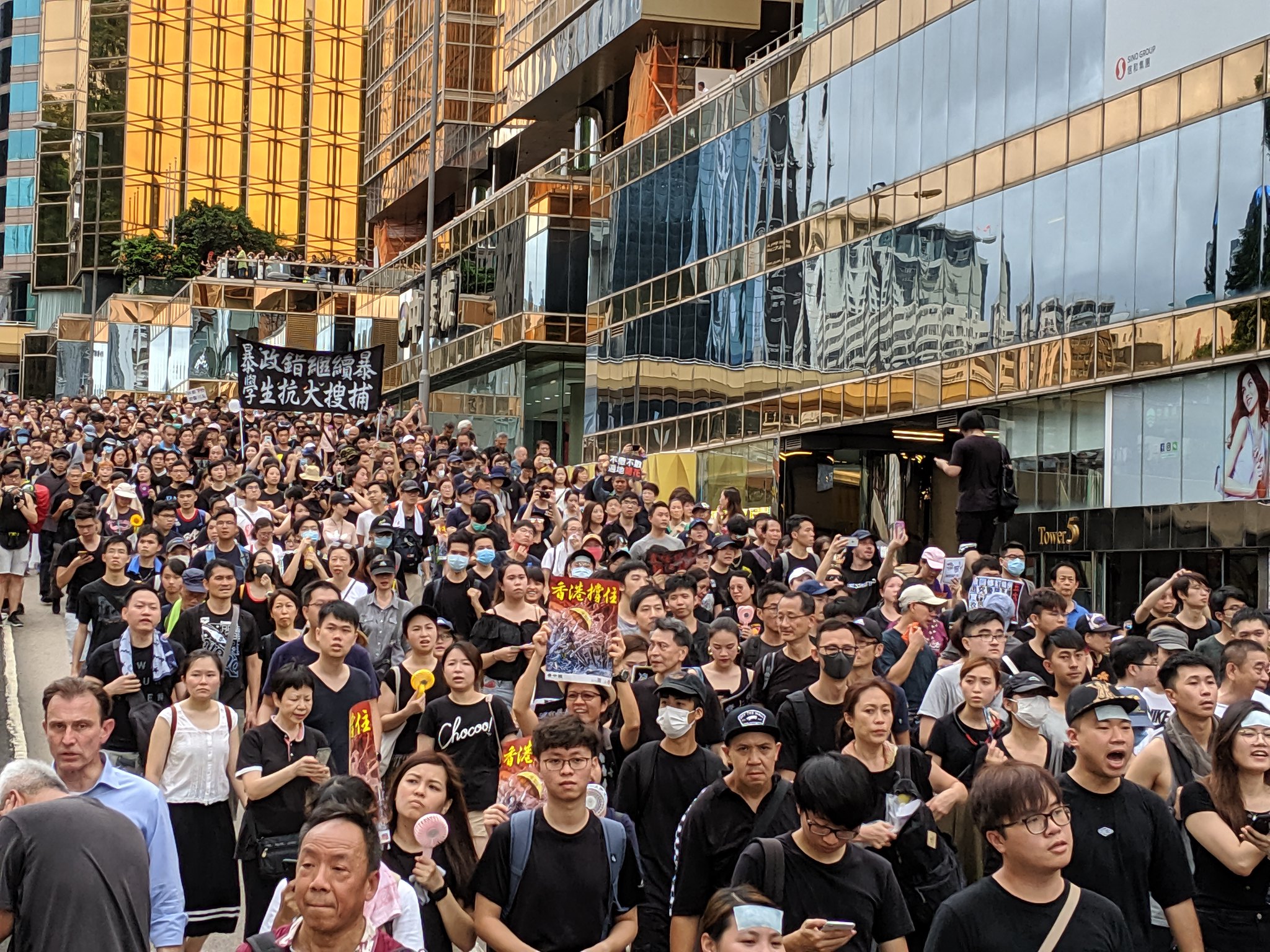
Hong Kongers protest against bill enabling extradition to the rest of China, July 2019 (Picture Credit: Studio Incendo)
Am I a traitor to my race?
According to many of the comments on my articles, in which I sometimes criticize the Chinese Communist Party (CCP) and call for its abuses to be checked, I am. I’ve been called a person who “doesn’t deserve to be Chinese,” who is “suffering from an identity crisis,” who has “forgotten his roots,” a “White-worshipping, Western-influenced blood-traitor.”
Funnily enough, most of these insults don’t actually come from people living in China, but from members of the Chinese diaspora, particularly in Malaysia and Singapore, who are, ironically, bigger fans of the CCP than Chinese citizens themselves. Despite the fact that (or maybe because) they never lived under the rule of the Party, their zeal for it is fanatic. They share propaganda from Chinese state media. They rave about the supposed superiority and benevolence of the CCP over other governments. They vaunt the ability of Chinese President Xi Jinping and the “meritocracy” of the Chinese system. And, of course, they try to discredit the CCP’s critics (like me).
I’ve always found that bizarre. After all, who suffers from the CCP’s despotism more than Chinese people themselves? Since the CCP is the world’s biggest oppressor of Chinese people, in fact, the deeper your sense of “roots” and “identity,” the more Chinese you feel, the more you should repudiate it.
Since the CCP is the world’s biggest oppressor of Chinese people, in fact, the more Chinese you feel, the more you should repudiate it.
There are, of course, plenty of universalist reasons to condemn the CCP. Its record of abuses is long and damning. It frequently uses trade to punish countries for perceived slights, most recently Australia for calling for an investigation into the origins of the coronavirus. It abets kleptocratic dictators in developing countries by undercutting Western aid and loans, so they don’t have to meet minimum standards of transparency and democracy. It props up the giant prison camp that is North Korea, a totalitarian dictatorship that only survives because of it. It’s imprisoned a million Uyghurs in detention camps, often for no better reason than their ethnicity and religion.
Yet the bulk of its abuses fall upon Chinese people. The CCP threatens Taiwanese people – who overwhelmingly reject it – with the invasion and annexation of their country, a flourishing liberal democracy and a beacon of liberty in Asia. It’s trying to strip Hong Kongers of the special freedoms it promised them, prompting a million of them to take to the streets to protest these encroachments. It kidnapped and abducted Hong Kong booksellers who sold titles unflattering to it, forced them to make staged confessions, and broadcasted these confessions to terrify others into submission. It blames the opposition to its rule in Hong Kong on the fiction that the people there are “influenced by foreign agents” because that sounds better than the truth – that most Hong Kongers despise it, and don’t need to be “influenced” to despise it when it repeatedly gives them good reason to.
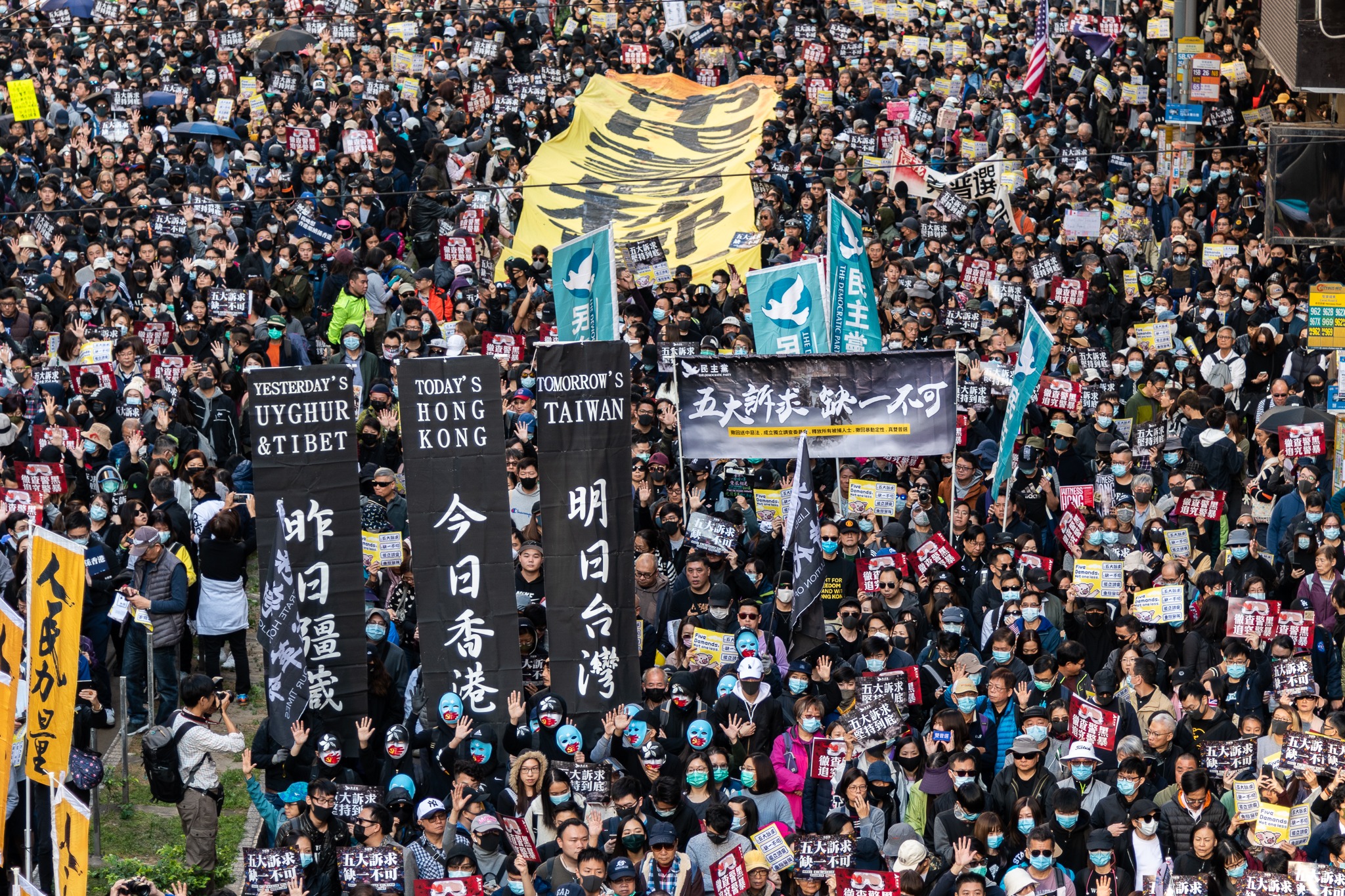
Hong Kong pro-democracy protest, December 2019 (Picture Credit: doctorho)
Worst of all is what it does to Chinese citizens on the mainland. It has long denied its people democracy and their most basic human rights – it massacred them by the thousand in Tiananmen Square for demanding these very things, and instead of taking responsibility for it, it tries to erase the massacre from history. It persecutes its best people, including Nobel Peace Laureate Liu Xiaobo, for calling for reform of the Chinese system and challenging it to live up to its stated principles, the barefoot lawyer Chen Guangcheng, for helping poor people bring legal action against government abuses, and the doctor Wang Shuping, for blowing the whistle on unsafe blood donation practices that threatened thousands of lives, and countless other intellectuals and activists. It heavily censors its media, bombards its people with propaganda, and erects a Great Firewall around its internet to keep them from “dangerous” ideas. And it justifies its dictatorship through the pernicious myth that Chinese people are apparently so inherently bloodthirsty that they’d quickly descend into orgies of violence and anarchy if the Party’s heavy hand was ever lifted.
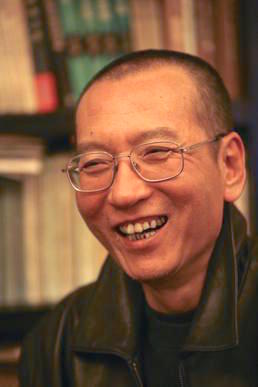
Chinese writer Liu Xiaobo, who died in custody in 2017
When I lived in Beijing back in 2013, it was possible to hope that, despite all this, China was slowly liberalizing. A Chinese friend of mine once rolled her eyes when I asked her about totalitarian elements within the CCP. “Yeah, they exist,” she said, “but it’s not as bad anymore. China is changing.” No one is likely to say that now. Since consolidating his power, Xi Jinping has made China even more repressive. He’s cracked down on even the limited spaces for free expression, and Chinese intellectual and political discourse has markedly deteriorated as a result. He encouraged a culture of incompetence, politicization, cowardice, and pathological secrecy that allowed the coronavirus outbreak to become an epidemic in the first place. Worse still, he’s rolled out a plan for a totalitarian social credit system, which aims to use big data to track every minute detail of Chinese people’s lives so the government can control them by rewarding them for doing things it likes and punishing them for doing things it dislikes, including for straying from Party orthodoxy.
Yet all this doesn’t seem to dampen the enthusiasm of many overseas Chinese for the benevolent Chinese Communist Party and its godlike leader, Xi Jinping. After all, didn’t the CCP “lift 800 million people out of poverty?” Wrong. In all likelihood, it was the Chinese people who lifted themselves out of poverty through their hard work and initiative. Witness, for example, how every Asian country where people who are ethnically and culturally Chinese comprise a large enough percentage of the population, (from Taiwan to Singapore to Malaysia) has seen similar prosperity (Malaysia less so in part because there Chinese comprise just a quarter of the population and are held back by affirmative action policies favoring the Malay majority). Likewise with Hong Kong, which was ruled as a British colony separate from China for the hundred years before 1997. Consider how even in the Asian countries where the Chinese are a tiny minority, like Indonesia and the Philippines where they make up 1% of the population, they control a disproportionate share of the private economy (60% in the Philippines). If China’s government was really so fantastic at managing its economy, you’d expect its GDP per capita – that is, its GDP taking into account its humongous population – to be high. But it’s actually quite modest: at $10,262 in 2019, it’s the 70th-highest out of 193 countries surveyed – less than half of Taiwan’s $24,828, which is the 39th-highest. When you factor-in their relative population sizes, China’s economy is actually massively underperforming compared to Taiwan’s.
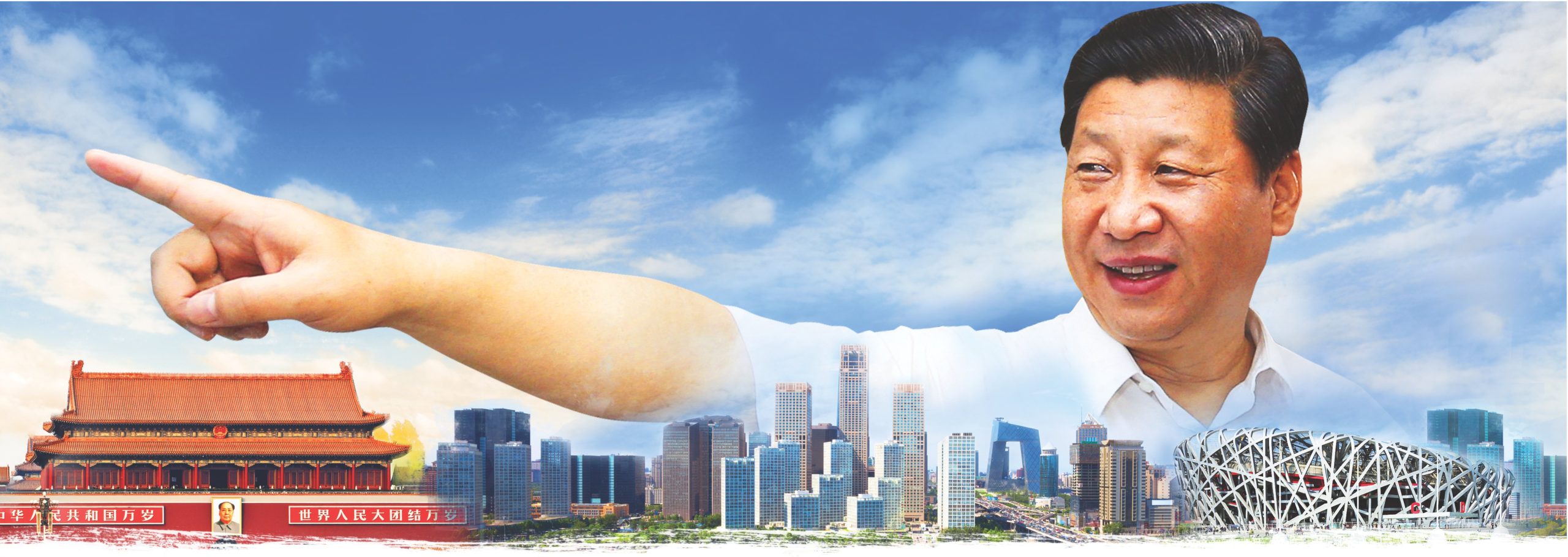
Yet all this doesn’t seem to dampen the enthusiasm of many overseas Chinese for the benevolent Chinese Communist Party and its godlike leader, Xi Jinping
What of China’s much-vaunted “political meritocracy?” That notion is laughable to anyone who’s ever had to work closely with Chinese officials and scholars (as I have) – they’re ridiculously incompetent, and the system seems to reward patronage, sycophancy, loyalty to Party, and doctoring figures rather than ability.
So why do so many overseas Chinese support a regime that’s incredibly authoritarian and incompetent? Is it just a preference for muscular dictatorship as a political system, particularly at the head of a powerful country? Unlikely, since they don’t seem to rave about Putin’s Russia or Erdogan’s Turkey. Why, then? The Chinese diaspora in Malaysia provides a particularly revealing example. Unlike the diaspora in, say, Singapore, Malaysian Chinese are generally thought to heavily favor democracy. Despite Malaysia’s relatively high economic growth, they largely despised the Barisan Nasional (BN) ruling party, criticizing it for its authoritarianism and incompetence, voting overwhelmingly against it, and cheering its fall from power in the election in 2018.
Why do so many overseas Chinese support a regime that’s incredibly authoritarian and incompetent?
Yet many Malaysian Chinese (I’d estimate about half of them) support the CCP. Sometimes the same people (and in many instances I’ve seen, the exact same people) who used to deride Malaysian state media as propaganda trash, uncritically eat up the stories from Chinese state media. The same people who used to condemn the Malaysian government when it imprisoned its critics make excuses for the CCP when it does the same. The same people who used to mock the Malaysian government’s attempts to whitewash its abuses will tell you that there are no detention camps in Xinjiang, that the Uyghurs there are all happy and free, and that reports to the contrary are just “Western media bias,” even those that come from non-Western news sources (like Al Jazeera). The same people who hated the BN party for embezzling public money in the 1MDB corruption scandal cast no blame on the CCP for aiding and abetting it in its crimes and harboring one of the masterminds of the scheme. The same people who had no trouble distinguishing love for country from love for a ruling party in Malaysia seem to conflate the two in China.
What accounts for this double standard, this cult-like worship of tyranny? Perhaps a bias that Malaysian Chinese are all too familiar with – one they’ve denounced countless times before. Many of them were astonished by the fact that so many Malays supported (and still support) former Malaysian Prime Minister Najib Razak despite the fact that he had zero charisma, was a heavy-handed dictator, and was obviously robbing the country blind and obstructing justice, for no better reason than that his government was more Malay supremacist and the opposition coalition was more multiracial. In other words, those Malays were ok with a government that oppressed and robbed them so long as the people oppressing and robbing them were other Malays, and actually preferred that to not being oppressed and robbed by a more multiracial government. Though they would never share in the spoils of his kleptocracy (in fact, he was stealing their tax dollars too), they reveled in the knowledge that “one of their own” enjoyed such power. At the end of the day, it came down to simple racism.
If overseas Chinese support the CCP primarily because of racism, though, it’s a funny kind of racism, it’s a racism that disregards the welfare of the actual people of that race. It’s a racism that calls Taiwanese “delusional” for resisting the “privilege” of being assimilated by China. It’s a racism that denigrates Taiwan’s popularly-elected government whilst venerating China’s unelected one. It’s a racism that calls even peaceful Hong Kong protestors “cockroaches” and urges the CCP to massacre them Tiananmen-style. It’s a racism that ignores the fact that the overwhelming majority of the people in Taiwan and Hong Kong – those who actually face the prospect of being ruled by the CCP – hate and fear it. It’s a racism that professes blood-loyalty to China in one breath and derides mainlanders as dirty, cutthroat, and uncivilized in the next (though, to be fair, plenty of overseas Chinese who don’t support the CCP also say this). It’s a racism that derives a sense of pride from having the same skin color as the biggest bully on the block, that prompts them to support Xi Jinping because he’s also Chinese and he’s one of the most powerful people in the world, and so identifying with him makes them feel like they’re powerful too.
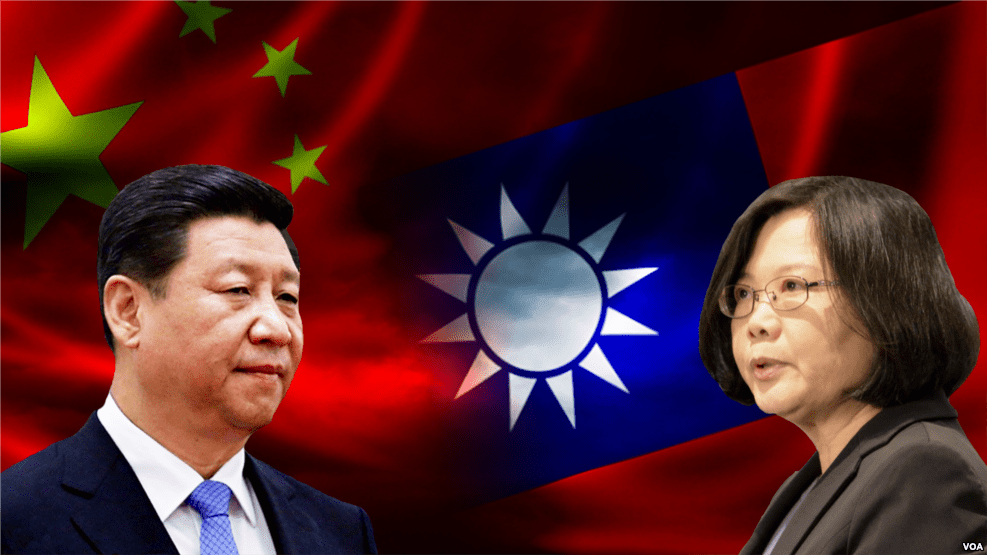
Chinese President Xi Jinping and Taiwanese President Tsai Ing-wen
It’s also a racism that ignores the reality of life in China in favor of a utopian fantasy. At the other extreme, there are people who paint China as a totalitarian dystopia, which it isn’t, obviously. It’s a beautiful and exciting country, and its people are warm, intelligent, and actually very interesting. But it is true that their government is profoundly oppressive, and that many of them feel that. It is true, for example, that rich Chinese citizens try to shift their assets overseas and obtain foreign passports and foreign citizenship (especially from Western countries). (A friend who did his MBA at Shanghai Jiao Tong University, one of China’s premier schools, told me that when he was accepted, admissions informed him that his cohort was very international, and included many Americans, Australians, and French. On the first day of class, he discovered that almost everyone was mainland Chinese – they just all held foreign passports.) Given the choice, even China’s wealthy and privileged vote with their feet.
It’s also true that mainland Chinese certainly do not appreciate the CCP’s constraints on their fundamental rights. Note the torrent of public rage against the officials who threatened whistle-blowing doctor Li Wenliang into silence. Note how Chinese forums abound with netizens criticizing and mocking state propaganda and censorship. Note how, instead of being lauded by citizens for contributing to China’s “harmonious” society, Fang Binxing, the architect of China’s Great Firewall, is one of the most despised men in China, and when he visited Wuhan University, some students there pelted him with eggs.
What struck me most, though, were the mainland Chinese friends who told me, quietly, that they regarded state media as propaganda, and that they went on online forums to find out the truth, or that many people rejected the official narrative of Liu Xiaobo as a troublemaker and regarded him as a hero. Mainland Chinese people, I’ve learned, want the same freedoms those in democracies enjoy, they hate being condescended to and treated like perpetual children by their own government, and they’re nothing like the happy drones the CCP’s cheerleaders make them out to be. Given the choice, they’d vote to make the mainland more like Hong Kong, instead of the other way round.
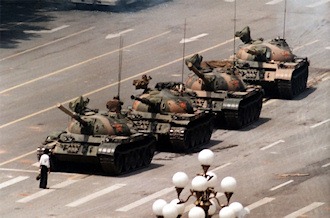
Tank Man, the unknown protestor who faced down a column of tanks the day after the Tiananmen Square Massacre
Where should my loyalty lie as an ethnic Chinese?
Certainly not with the authoritarian and incompetent CCP, the useful idiots amongst the Chinese diaspora who blindly follow it, and their superficial idea of racial solidarity. The notion that you should support the Party if you love China is as absurd as the notion that you should support the despotic Malaysian government if you love Malaysia, or that you should support clown-president Donald Trump if you love America.
Rather, my loyalty lies with the Chinese people themselves. I want Taiwanese people to remain free. I want Hong Kong people to keep their special liberties, the very thing that makes their city, a city I’ve come to regard as my home (or, at least, one of my homes), so incredibly special. And I want my mainland Chinese friends to one day know these things too, to not have to read propaganda instead of news, to not have to lower their voice when they want to criticize their government. It is for their sakes that people of conscience should oppose the regime that has hijacked their civilization and purports to rule over them.
